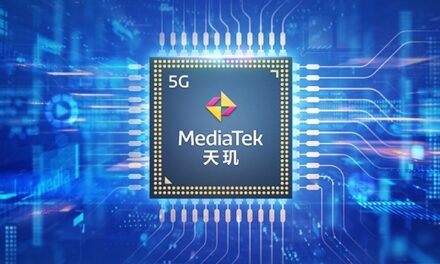
Managed ICT: Key Features And Benefits For Your Business

Today, technology is no longer just a tool; it’s the lifeblood of your business. To stay competitive, you need a robust and reliable IT infrastructure that supports your growth and innovation. That’s where Managed Information and Communication Technology (ICT) services come in.
Outsourcing your IT needs to a trusted Managed Service Provider (MSP) can free up valuable time and resources, improve efficiency, and enhance security. This blog post will discuss the key features and benefits of managed ICT and why it’s essential for businesses of all sizes.
Key Features of Managed ICT
Managed ICT services offer businesses a strategic way to streamline IT operations and enhance overall efficiency. Here are some of the key features that make managed ICT an essential solution for modern organizations:
1. Comprehensive IT Support
Managed ICT services provide businesses with comprehensive IT support, including 24/7 system monitoring, proactive maintenance, and responsive technical assistance. This ensures your technology infrastructure runs smoothly, minimizing disruptions and addressing potential issues before they escalate. The constant oversight enhances operational efficiency and provides peace of mind, knowing that IT experts are always available to assist.
2. Cloud Integration and Management
Cloud integration is a critical feature of managed ICT services, enabling businesses to store, access, and manage data seamlessly. Providers offer secure cloud migration services and ensure your systems are optimized for cloud environments. With backup solutions and disaster recovery options, managed ICT helps safeguard critical business information and ensures continuity during emergencies, making your operations more resilient and agile.
3. Cybersecurity Solutions
With the increasing threat of cyberattacks, managed ICT providers prioritize advanced security solutions. They deploy firewalls, anti-virus software, and continuous remote monitoring systems to protect your business from potential cyber threats. Regular security audits and updates are also part of the service, ensuring your systems remain secure against evolving risks and your data stays protected from breaches.
4. Scalable Services
Managed ICT services are designed to be flexible and scalable, catering to businesses of all sizes. As your business grows or your needs evolve, these services can be adjusted to match your requirements. This adaptability ensures that you only pay for the services you need, avoiding unnecessary expenses while maintaining the ability to scale up or down as necessary.
5. Strategic IT Planning
One of managed ICT’s standout features is its strategic guidance. Providers act as trusted partners, helping align your technology with your long-term business objectives. They assist with IT budgeting, infrastructure upgrades, and future-proofing your systems, ensuring your business stays competitive and ready for emerging technological trends.
By leveraging these key features, managed ICT services provide businesses with a reliable, scalable, and secure IT infrastructure, enabling them to stay competitive and focus on their core objectives.

Benefits of Managed ICT
Managed ICT services deliver more than just technical support—they offer strategic advantages that drive efficiency, security, and growth. Here are some of the key benefits businesses can gain from adopting managed ICT:
1. Cost Savings
Outsourcing ICT management offers significant cost savings by reducing the need for an in-house IT team and lowering hiring, training, and retaining skilled staff expenses. Managed ICT services operate on a predictable monthly fee model, allowing businesses to budget effectively while accessing a broad range of IT expertise and support.
2. Enhanced Productivity
By entrusting IT management to experts, businesses can free their employees from dealing with technical issues, enabling them to focus on core activities. Reliable IT systems ensure uninterrupted workflows and reduce the time wasted on resolving system failures or glitches. This leads to enhanced overall productivity and efficiency across the organization.
3. Access to Expertise
Managed ICT providers bring a wealth of knowledge and experience in various industries. Their specialized expertise ensures your business benefits from the latest technologies and best practices. This level of support is often difficult to achieve with an in-house team, making managed ICT a valuable resource for staying ahead in a competitive landscape.
4. Improved Security and Compliance
Security and compliance are integral to managed ICT services. Providers stay updated on industry regulations and ensure that your business adheres to necessary legal requirements. They implement measures to protect sensitive information, safeguarding your organization against penalties and reputational damage while maintaining a secure operational environment.
5. Business Continuity
Managed ICT services prioritize business continuity by offering robust backup and disaster recovery solutions. These services minimize the risk of data loss and operational disruptions, ensuring your business can continue functioning effectively even during unforeseen events. With comprehensive planning and quick recovery processes, you are better prepared to handle emergencies.
6. Focus on Innovation
Outsourcing IT management allows businesses to shift their focus from routine technical tasks to innovation and strategic growth. Managed service providers handle day-to-day IT responsibilities, enabling your team to concentrate on leveraging technology for competitive advantage and exploring new opportunities that drive long-term success.
By embracing these benefits, businesses can optimize their operations, enhance productivity, and stay ahead in an increasingly digital landscape.
Conclusion
Nowadays, where technology is the cornerstone of business success, managed ICT offers a strategic solution to streamline IT operations, enhance security, and drive growth. By partnering with a reliable MSP, you can gain a competitive edge, reduce costs, and ensure business continuity.



























